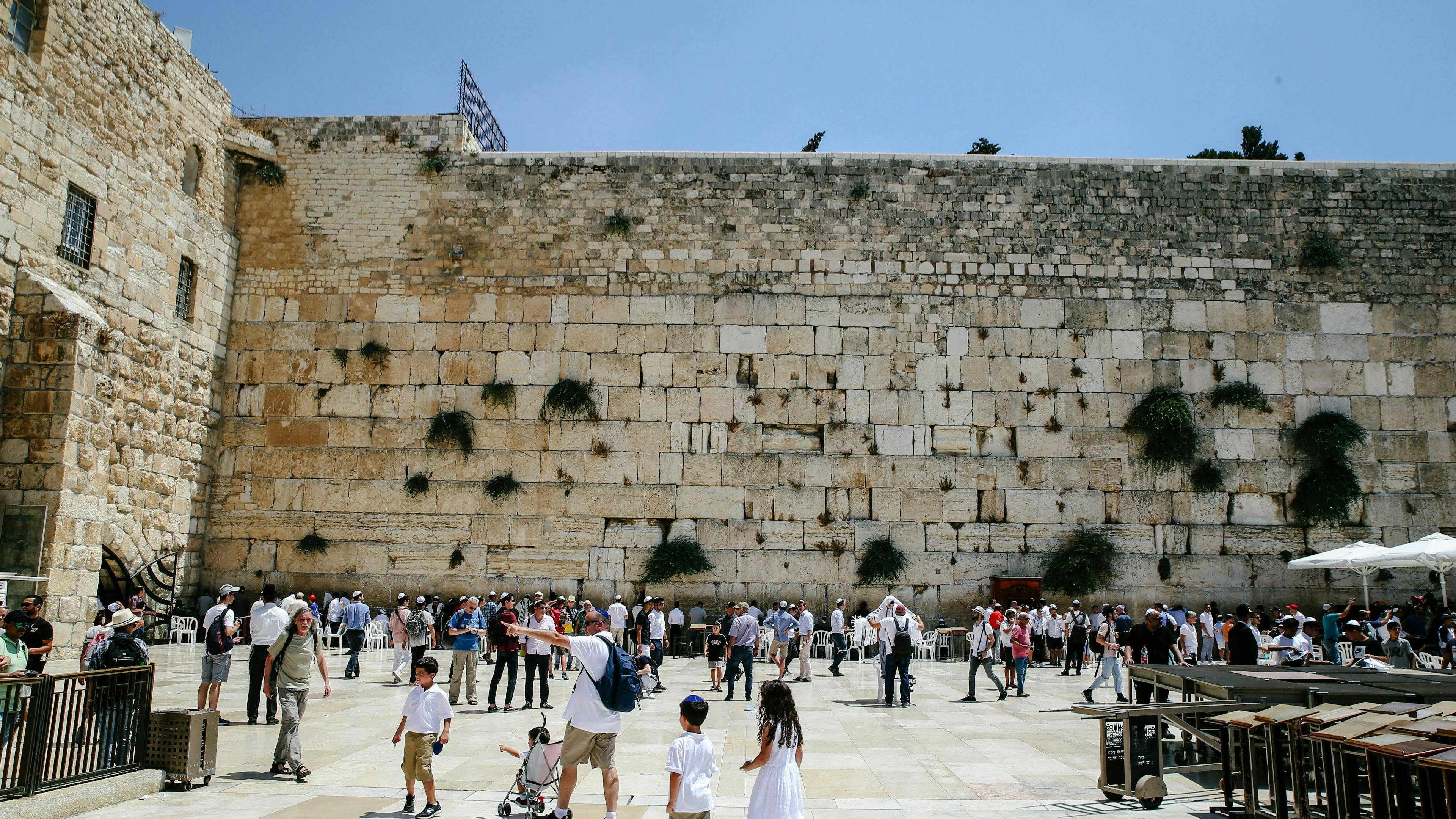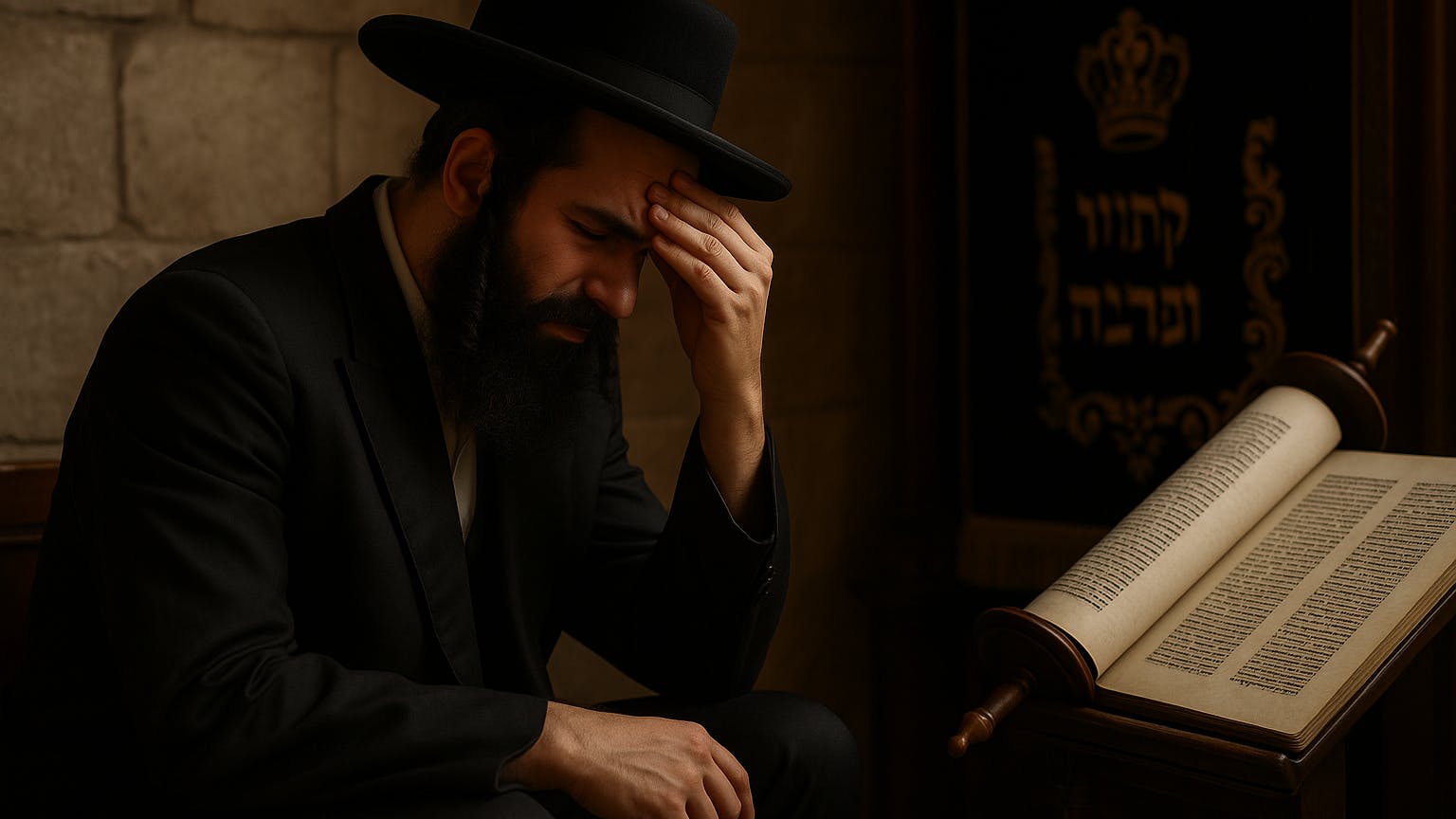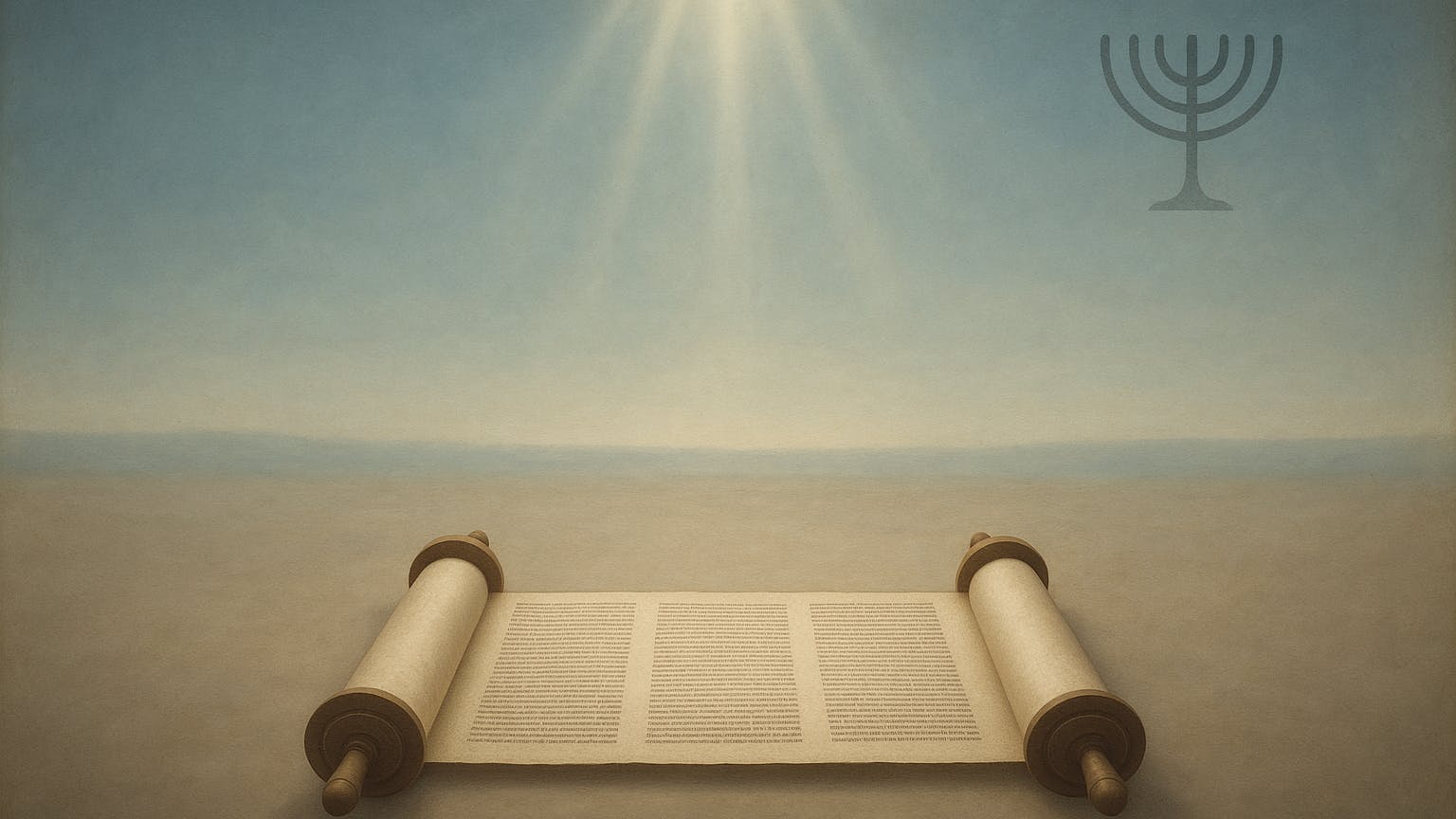Have you ever asked yourself this question? If so, you’re not the first person (or Jew) to ask.
It’s likely you’ve heard horror stories of this man named Yeshua, but we are here to challenge everything you think you know. Let’s look at the Messiah through the lens of the Tanakh and see for ourselves.
There is much speculation about who this "mysterious" Messiah figure is and when He will come, but what is certain is that all Orthodox Jews agree on one thing: "Yeshua from Nazareth? Nope, definitely not Him!"
In a world of two Jews and three opinions, allow me to add a fourth into the mix. In order to determine who isn't the long-awaited Messiah, one must first determine who He is and what qualifies Him to be the one.
What is a Messiah?
Let's start from the beginning. The meaning of Messiah in Hebrew is ‘anointed one.’ The figure of the Messiah or anointed one was born out of the Tanakh. (Spoiler alert: I'm not talking about Isaiah, Zechariah, or Daniel… yet.) I'm talking about the first prophecy regarding the Messiah, given by G-d himself.
In the book of Genesis, after Adam and Eve tasted the forbidden fruit, G-d stepped in to fix a world now defiled with sin and separated from Him by death, declaring that He would take vengeance on the serpent for deceiving His creation:
Genesis 3:15
And I will put enmity between thee and the woman, and between thy seed and her seed; it shall bruise thy head, and thou shalt bruise his heel.
G-d tells the sly serpent that Eve's future offspring would be the end of him, but not before the serpent causes some damage himself. In other words - a Redeemer would be born and the enemy would attempt to strike Him down, but that Redeemer would conquer death.
G-d's plan to redeem His creation was revealed, and the emerging figure of the promised Messiah became increasingly tangible with every prophecy given by each of the prophets.
Let's look at a handful of prophecies that help us identify the Messiah:
- Isaiah prophesies that the Messiah would reverse the effects of sin and death, heal the sick, and set people free.
"The Spirit of the Lord GOD is upon me; because the LORD hath anointed me to preach good tidings unto the meek; he hath sent me to bind up the brokenhearted, to proclaim liberty to the captives, and the opening of the prison to them that are bound." (Isaiah 61:1)
- Samuel prophesies that the Messiah's kingdom would reign forever. He also states that G-d would call the Messiah His Son.
"I will set up thy seed after thee, which shall proceed out of thy bowels, and I will establish his kingdom. He shall build an house for my name, and I will stablish the throne of his kingdom for ever. I will be his father, and he shall be my son. If he commit iniquity, I will chasten him with the rod of men, and with the stripes of the children of men”. (2 Samuel 7:12-14)
- Jeremiah prophesies that the Messiah would offer forgiveness of sins through a new covenant.
"But this shall be the covenant that I will make with the house of Israel; After those days, saith the LORD, I will put my law in their inward parts, and write it in their hearts; and will be their God, and they shall be my people…for I will forgive their iniquity, and I will remember their sin no more.” (Jeremiah 31:33-34)
The Tanakh also says the Messiah will be:
- Born of a virgin (Isaiah 7:14)
- Born in Bethlehem (Micah 5:2)
- One who brings peace and redeems the world (Isaiah 9:6-7)
- A suffering servant who dies for our sins (Isaiah 52:13-53:12)
- A healer and miracle worker (Isaiah 35:5-6)
- Hated and rejected by his own people (Psalm 118:22-24)
These are only a few of the prophecies declared about the Messiah. Throughout the entire Tanach, you can find more than 350 prophecies explaining the character, life, and purpose of the Messiah.
What the Rebbe has to say
With so many different streams and sects within Judaism, it can be challenging to decide who to listen to amongst the many voices fighting to be heard.
For example, Hasidic Jews believe that the Messiah is coming soon, and doing charitable acts and keeping the mitzvot will hasten His arrival. Some believe that their dynastic rabbis, who are wise leaders, are potential candidates for being the Messiah.
Other Jews adhere to the belief that there is a 'Tzadik Ha-Dor', a person born each generation with the potential to become Messiah.
Conservative Judaism says no one can know who the Messiah is and that "every human being must live as if he or she, individually, has the responsibility to bring about the messianic age."
The issue that arises in all of these beliefs is that none of these options match the descriptions given by the prophets in the Tanach.
Rabbis and righteous people have come and gone, yet none of them have fulfilled the prophecies described in the Tanach. Now that we've determined who the Messiah is not, let’s take a look at someone who fulfills the biblical description of the Messiah.
Yeshua: Wasn't He A Heretic?
Religious leaders have drawn out Yeshua to be a crazed and delusional man. Still, when you dare to look at ancient texts, history, and current times with an unbiased attitude, you'll discover a different Yeshua than you thought.
Many think He came to do away with the mitzvot, but not so. In fact, Yeshua says in Matthew 5:17:
Matthew 5:17
"Think not that I am come to destroy the law, or the prophets: I am not come to destroy, but to fulfil."
How did Yeshua fulfill them?
Let's take a closer look at some of the prophecies:
- Born of a virgin (Isaiah 7:14): Yeshua was born a supernatural birth, not by man, but by God, thus, fulfilling the prophecies in Genesis and Isaiah (Matthew 1:18-25).
- Descendant of David (2 Samuel 7:12-16): Yeshua is a direct descendant of King David from the tribe of Judah, as proven through His documented genealogy in Matthew 1:1.
- Miracles and healings (Isaiah 35:5-6): Jesus forgave and healed the paralytic man, as well as countless others, and even calmed a raging storm (Matthew 9:1-7 and Mark 4:35-41).
- A prophet like Moses (Deuteronomy 18:15-19): The Israelites were too afraid to hear from G-d directly, therefore G-d gave them Moses as a mediator. Yeshua is the ultimate mediator between G-d and His people. (1 Timothy 2:5)
- Suffered for repentant sinners (Isaiah 52:13-53:12): Yeshua was mocked, accused, tortured, beaten, and crucified as the ultimate sacrifice for our sins (Mark 15:15-47).
- Reconciled and resurrected (Isaiah 53:10-53:12): Yeshua conquered death, rose from the grave, and reconciled creation back to G-d which was His ultimate plan after the fall in the garden (Luke 24).
Scholars, researchers, and historians have taken 351, if not more, prophecies regarding the Messiah and meticulously scrutinized and compared them to Yeshua’s well-documented life and actions, only to find He has fulfilled them all!
Contrary to what some might teach, the Yeshua you read about in the New Testament scriptures is not a delusional, false prophet leading people away from G-d. Instead, every step of the way Yeshua refocused the people's attention towards G-d and honored Him (John 17).
Perhaps all this time we have seen Yeshua all wrong. Maybe we have been quick to judge and condemn, stubborn in heart, and slow to listen. Isn't that the one thing G-d warned us against? That we, His people, would be quick to reject the one He sent us, just like it says in Psalm 118:22-23:
Psalm 118:22-23
"The stone which the builders refused is become the head stone of the corner. This is the LORD's doing; it is marvellous in our eyes."
As G-d-fearing, Torah-keeping Jews, it's our prerogative and responsibility to rely on the Tanakh to determine the nature of the Messiah, so we can honestly answer the question:
"When or if the Messiah comes - would I know Him well enough to recognize Him?"
We want to help you see the unfiltered truth about the Messiah, so that you can make up your own mind about this mysterious Messiah figure.
More Topics
You might alsoo be interested in these topics.




